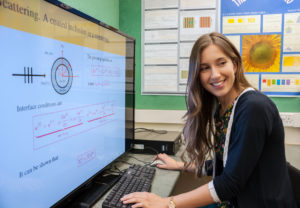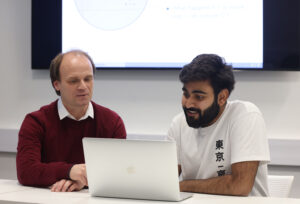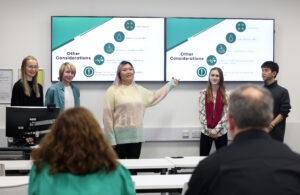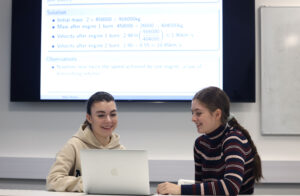How you'll learn
We are proud of our record on teaching quality; our MSc consists of cutting edge mathematics modules delivered by world-leading experts. We use a range of teaching methods, including traditional lectures and tutorials, video content, interactive learning sessions and one-to-one project supervision. Opportunities for individual discussions are provided for every taught module, for example via online forums or staff office hours.
How you're assessed
Each lectured module has an assessment scheme tailored to fit its syllabus. This might include a traditional written exam, class test, assignments, projects, group work, or online exercises with automatic marking and immediate feedback. The programme also includes dissertation modules assessed through independent project work.
Liverpool Hallmarks
We have a distinctive approach to education, the Liverpool Curriculum Framework, which focuses on research-connected teaching, active learning, and authentic assessment to ensure our students graduate as digitally fluent and confident global citizens.
The Liverpool Curriculum framework sets out our distinctive approach to education. Our teaching staff support our students to develop academic knowledge, skills, and understanding alongside our graduate attributes:
- Digital fluency
- Confidence
- Global citizenship
Our curriculum is characterised by the three Liverpool Hallmarks:
- Research-connected teaching
- Active learning
- Authentic assessment
All this is underpinned by our core value of inclusivity and commitment to providing a curriculum that is accessible to all students.









